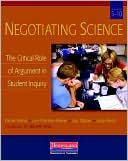Category Books
- Fiction Books & Literature
- Graphic Novels
- Horror
- Mystery & Crime
- Poetry
- Romance Books
- Science Fiction & Fantasy
- Thrillers
- Westerns
- Ages 0-2
- Ages 3-5
- Ages 6-8
- Ages 9-12
- Teens
- Children's Books
- African Americans
- Antiques & Collectibles
- Art, Architecture & Photography
- Bibles & Bible Studies
- Biography
- Business Books
- Christianity
- Computer Books & Technology Books
- Cookbooks, Food & Wine
- Crafts & Hobbies Books
- Education & Teaching
- Engineering
- Entertainment
- Foreign Languages
- Game Books
- Gay & Lesbian
- Health Books, Diet & Fitness Books
- History
- Home & Garden
- Humor Books
- Judaism & Judaica
- Law
- Medical Books
- New Age & Spirituality
- Nonfiction
- Parenting & Family
- Pets
- Philosophy
- Political Books & Current Events Books
- Psychology & Psychotherapy
- Reference
- Religion Books
- Science & Nature
- Self Improvement
- Sex & Relationships
- Social Sciences
- Sports & Adventure
- Study Guides & Test Prep
- Travel
- True Crime
- Weddings
- Women's Studies
Negotiating Science: The Critical Role of Argument in Student Inquiry, Grades 5-10 » (New Edition)

Authors: Brian Hand, Lori Norton-Meier, Jay Staker, Jody Bintz
ISBN-13: 9780325026077, ISBN-10: 0325026076
Format: Paperback
Publisher: Heinemann
Date Published: February 2009
Edition: New Edition
Author Biography: Jay Staker
Brian Hand is the coauthor of the Heinemann titles Negotiating Science and Questions, Claims, and Evidence. He is a science educator at the University of Iowa who is involved in research on student learning and how we use language in science classrooms to help the learning process. Brian was a school teacher for eleven years before moving into the university system, where he has published in a wide range of journals.
Lori Norton-Meier is the coauthor of the Heinemann titles Negotiating Science and Questions, Claims, and Evidence. She has been intrigued by children's stories since her time as a kindergarten teacher. She is currently an assistant professor at Iowa State University in Literacy Education. Her areas of interest include early childhood literacy, science literacy, family literacy, and media literacy.
Book Synopsis
Knowing from the inside out how argument works is a literacy skill now universally recognized as essential. This is the goal of real reading, writing, and speaking - and finally the gift of real science. I am grateful to the authors of this volume for making these gifts available to science and literacy teachers, but most importantly, to all of our students.
- Wendy Saul
Author of Science Workshop
The best way to transform students' scientific thinking is by transforming their science writing. Writing is thinking and with Negotiating Science you'll move from rote procedures to the kind of writing that real scientists do. Your students will learn to negotiate meaning from the results of their work and to argue for their ideas - posing questions, documenting evidence, making claims, and sharing data. Perfect for science notebooks!
Leading you through an argument-based approach to science writing that is grounded in highly effective practices, Negotiating Science:
- demonstrates what good science arguments look like through student samples.
- models and supports top-notch instruction through teaching tools and templates adaptable to any classroom.
- contains guidelines that make assessment seamless and manageable.
- includes “Have a Go” activities help you make the transition from traditional science writing to argument-based writing.
Best of all, the writing Negotiating Science advocates can support your school's nonfiction and content-area writing goals.
Give students the chance to deepen their connection to science by writing for authentic purposes. See the dramatic difference it makes when students negotiate the meaning of concepts and content the way real scientists do. All while you meet schoolwide writing objectives. Read Negotiating Science and unlock the power of writing in your science classroom.
Table of Contents
Foreword ix
Acknowledgments xiii
An Introduction: It's All About Learning 1
Section I Examining Teaching in the Service of Learning 7
Chapter 1 Introduction to the Science Writing Heuristic (SWH) Approach 9
Chapter 2 What Do We Have to Know? (Theory and Practice) 21
Chapter 3 Teaching Skills Key to the SWH Approach 35
Chapter 4 Writing in the Science Classroom 57
Section II Examining the Science Writing Heuristic Approach 75
Chapter 5 Getting Started with the SWH Approach 77
Chapter 6 Questions, Investigations, and Justifying Claims with Evidence 93
Chapter 7 Reading and Reflection 133
Chapter 8 Wrapping Up an SWH Unit: The Summary-Writing Experience 157
Section III Examining Our Own Practice 171
Chapter 9 Measuring Your Progress 173
Chapter 10 Frequently Asked Questions and Benefits of the SWH Approach 188
Have a Go! Appendix Overview 197
Appendix A The Start of Your Journey 198
Appendix B Your Teacher Voice 199
Appendix C Aligning Learning and Teaching 200
Appendix D Negotiating Your Own Meaning 202
Appendix E Examining Conceptual Frameworks 203
Appendix F Management vs. Teaching 206
Appendix G Custom Professional Development Program Design 208
Appendix H What Do You and Your Students Think About Teaching and Learning? 209
Appendix I Student Questions 212
Appendix J Using Questions to Guide Discussion 213
Appendix K Making Claims, Providing Evidence 215
Appendix L Assessing Student Writing 219
References 221
Index 223
Subjects
 Learning
Learning  Inquiry - based learning -> General and miscellaneous
Inquiry - based learning -> General and miscellaneousEducation & Teaching
 Teaching & Teacher Training
Teaching & Teacher Training  Teaching - Science & Technology
Teaching - Science & TechnologyNonfiction
 All Nonfiction
All Nonfiction  Education - General & Miscellaneous
Education - General & MiscellaneousScience & Nature
 Reference & Textbooks
Reference & Textbooks  Study & Teaching of Science
Study & Teaching of ScienceScience & Nature
 All Science & Nature
All Science & Nature  Science Reference
Science ReferenceNonfiction
 Science & Nature
Science & Nature  Reference & Textbooks
Reference & TextbooksNonfiction
 Science & Nature
Science & Nature  All Science & Nature
All Science & Nature
